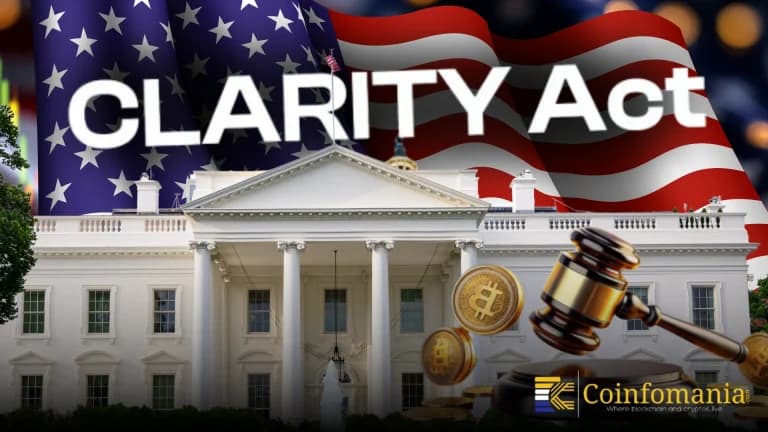MIT Brothers Fight Search Evidence In $25M Ethereum Exploit
MIT brothers face trial over $25M Ethereum exploit, with Google search evidence sparking key legal battle on attorney-client privilege.

Quick Take
Summary is AI generated, newsroom reviewed.
MIT brothers accused of $25M Ethereum exploit using MEV manipulation
Prosecutors seek to admit Google searches as digital evidence in trial
Defense argues searches fall under attorney-client privilege protections
Case marks first prosecution tied to Ethereum MEV-boost transactions
Outcome could shape future legal standards for digital evidence use
The trial of Anton and James Peraire-Bueno is shaping up to be one of the more important legal tests at the intersection of cryptocurrency, digital evidence, and attorney-client privilege. The two MIT graduates are accused of pulling off a $25 million Ethereum exploit in just twelve seconds by manipulating Ethereum’s transaction validation system. Prosecutors say they set up multiple validators, tricked MEV trading bots into revealing profitable transactions, and then reordered those transactions for their own benefit. On top of the fraud charges, they face accusations of money laundering, with the government pointing to shell companies, foreign exchanges, and privacy tools used to conceal the funds. Each count of wire fraud carries up to twenty years, so the stakes are high.
Google Search Evidence Disputed in Ethereum Exploit Case
What makes this case unusual is not just the Ethereum exploit itself but the way prosecutors are relying on digital evidence. A central fight is over whether the brothers’ Google searches can be admitted in court. Queries like “top crypto lawyers” and “wire fraud statute of limitations” can reveal a lot about a person’s intentions. The defense argues that those searches fall under the attorney-client privilege. This is becausue they were part of seeking legal advice after the arrest. The government, unsurprisingly, disagrees. The key legal issue is whether search history counts as privileged communication. If it happens around the time someone is consulting a lawyer. Courts usually say no. Judges tend to demand extra proof and keep privilege limited to direct conversations with attorneys.
First Criminal Case Tied to Ethereum MEV-Boost Mechanism
This is also the first criminal prosecution tied specifically to Ethereum’s MEV-boost mechanism. MEV, or maximal extractable value, has been a controversial gray area in blockchain trading for years. That is reason why MIT brothers face trial over $25M Ethereum exploit. In court, Google search evidence is sparking key legal battle on digital evidence and attorney-client privilege. Prosecutors are signaling that “code-is-law” is not a defense when a scheme crosses into manipulation and deception. Judge Clarke has already ruled that the wire fraud statute provides fair warning, even if the method of execution was novel. That ruling undercuts the idea that exploiting blockchain mechanics is automatically legal just because it is technically possible.
Digital Evidence and Privilege in Modern Courts
The privilege issue extends far beyond this one case. Courts are grappling with how digital evidence fits into established doctrines. We’ve seen disputes over Google’s “Communicate with Care” program, where employees allegedly used privilege as a shield for routine business communication. International courts are also wrestling with standards for authenticating digital evidence and balancing privilege against cross-border investigations. The outcome here could influence how search data and online activity are treated in prosecutions well beyond cryptocurrency.
Money Laundering Tactics Uncovered After Ethereum Exploit Scheme
The case highlights how laundering through foreign exchanges with weak know-your-customer rules remains a major vulnerability. Enforcement agencies are already pushing for stronger anti-money-laundering measures, especially in decentralized markets where traditional safeguards don’t apply. Asset recovery is another angle worth noting. There has been recent successes, like the recovery of $3.6 billion from the Bitfinex hack. Blockchain’s transparency can work against criminals over the long term. If funds in this case are traced and frozen, it would reinforce the idea that even sophisticated exploits can be unwound with enough cooperation and analytics.
The brothers will go on trial in October 2025. The judge’s ruling on their Google searches could set a big precedent. If the court accepts them as evidence, it reshapes how digital data is weighed against claims of attorney-client privilege. If the searches get tossed out, it may spark fresh demands for stronger digital privacy protections. Either way, the case is likely to influence far more than just crypto prosecutions. It will influence how courts handle online searches, digital evidence, and attorney-client privilege for years to come.
Follow us on Google News
Get the latest crypto insights and updates.


